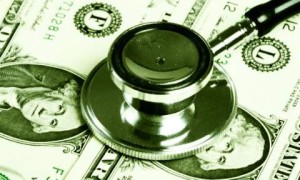Feds may disallow PA’s managed care providers tax, could ask repayment of $1.7B

By Eric Boehm | PA Independent
Pennsylvania may have to repay $1.7 billion to the federal government and may not be allowed to continue levying a tax on managed care providers to help fund Medicaid programs.
The inspector general for the federal Department of Health and Human Services issued a report Friday recommending the Center for Medicare and Medicaid Studies rule that Pennsylvania’s gross receipts tax on managed care facilities is impermissible for use towards federal matching funds for Medicaid.
TAX OR NO TAX: Pennsylvania uses revenue from a gross receipts tax on managed care providers to get higher federal matching funds, but that arrangement might not be legal.
It’s not a final decision by any means — simply a recommendation CMS could choose to adopt or ignore completely. But if the inspector general’s report were to guide the agency’s policy, it would potentially cause more budget problems for the Keystone State, though probably not this year.
A spokesman for the state Department of Public Welfare said it was too soon to know for sure whether Pennsylvania would be asked to pay back $1.7 billion in federal Medicaid funds received over the last three years, as the inspector general’s report recommends.
“We’re following the situation and waiting to see what HHS decides,” said Eric Kiehl.
Managed care providers in Pennsylvania pay the gross receipts tax to the state. The state then reimburses providers for the tax paid with matching dollars provided from the federal government.
It’s complicated, but the bottom line is the existence of the GRT allows Pennsylvania to get more federal money for medical assistance programs.
Under federal law, states are allowed to use revenue from health-care related taxes to pay for their share of Medicaid costs, but Pennsylvania’s gross receipts tax fails to meet a series of standards set by the federal government for that purpose.
As a result, the inspector general concluded, Pennsylvania used those tax revenues to decrease their own costs and increase the federal share of expenses.
If HHS were to determine the tax wasn’t permissible for those reimbursements, the state would have to find another way to make up that revenue. But the gross receipts tax doesn’t flow through the state’s General Fund, so changes would probably not affect the state budget, unless lawmakers were to direct other state funds to make up for the change in federal policy.
“It makes the budget situation more difficult,” said Matt Knittel, executive director of Pennsylvania’s Independent Fiscal Office. “It’s already pretty difficult on the revenue side and would make it a little tougher on the spending side.”
The future of the gross receipts tax on manage care providers also plays into the still-ongoing debate over whether Pennsylvania should expand Medicaid as part of the federal Affordable Care Act.
In a report last year on the costs and benefits of the expansion, the Independent Fiscal Office projected the tax would bring in about $78 million in extra federal funds each year to cover new Medicaid enrollees, if the state expanded eligibility.
Proponents of Medicaid expansion have pointed to that report as evidence increased eligibility would help the state’s bottom line by allowing more federal funds to flow to Pennsylvania.
If CMS follows the recommendations from the inspector general and rules the managed care facility tax impermissible for reimbursement, that future revenue would not materialize.
Boehm can be reached at Eric@PAIndependent.com and follow @PAIndependent on Twitter for more.







